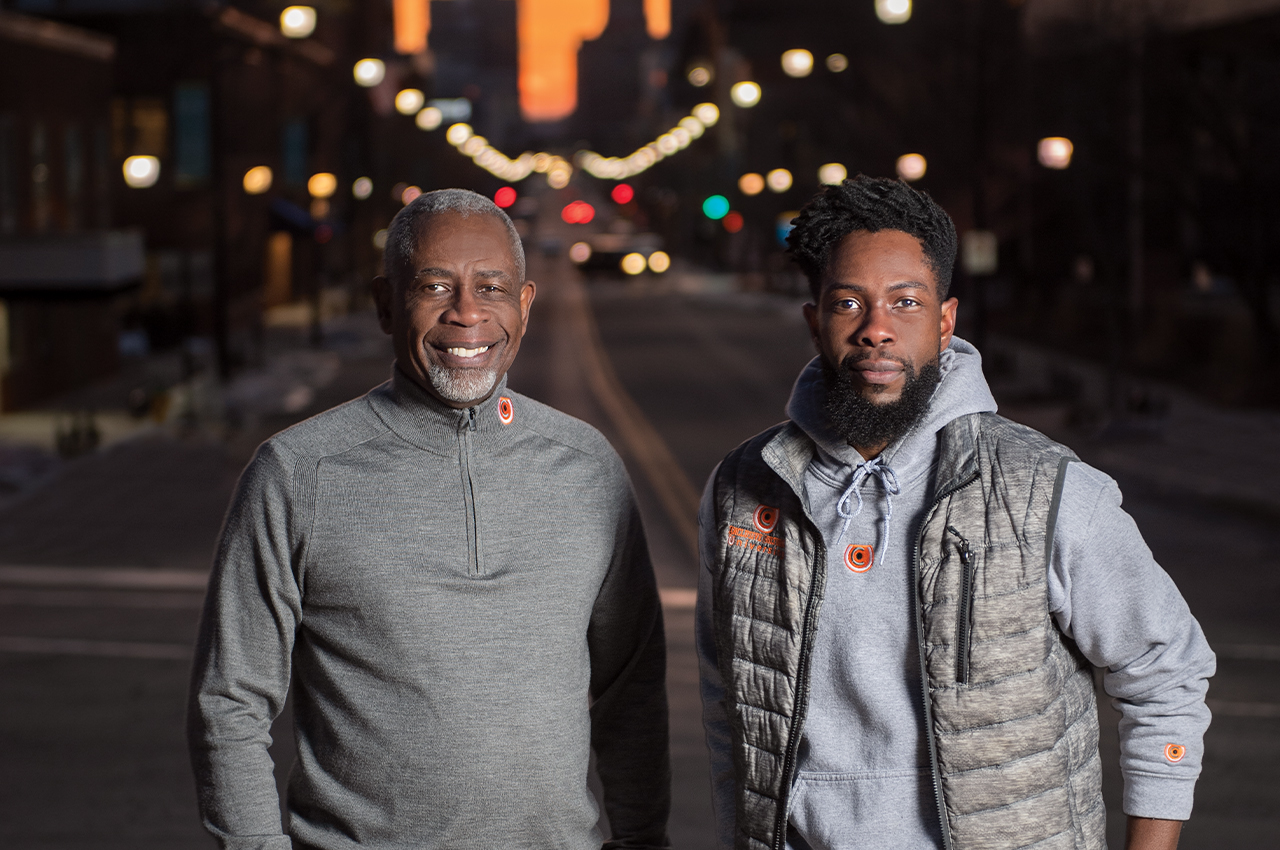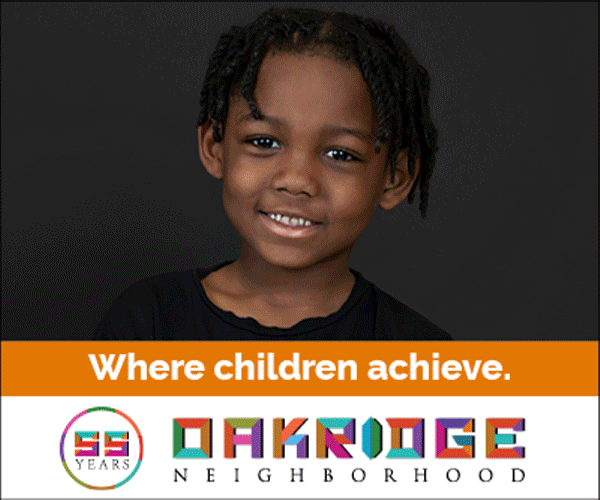Inclusive Cultural University founders Del and Jonnell Marion work with companies, organizations and publc agencies to tackle real-world differences that can cause conflict. The two seek to help people understand the role they can play in creating a more equitale society.
Writer: Barbara Dietrich Boose
Photographer: Duane Tinkey
As a marketing and international business major at Iowa State University who was active in numerous campus organizations, Jonnell Marion felt well-prepared for his subsequent careers in banking, retail management and hospital administration. What he wasn’t prepared for were the “not-so-pleasant experiences,” such as condescending underlings and customers who openly preferred to interact with his white co-workers.
“I was on the front line of how people apply their prejudices and implicit biases,” says the now 38-year-old Marion.
Marion was contemplating his next career move when he and his father, Del Marion, attended a meeting at Valley High School in 2016 about an equity audit the school conducted as a result of a race-related conflict. Del, now 63, had experienced his own racial slights during his corporate career and was a longtime volunteer in the West Des Moines school system; Jonnell is a Valley High School graduate. During the meeting, several students and community members expressed frustration about the school’s culture and the need for change.
“People made comments at the meeting and I’d think, ‘Wow, we should build on that,’ but then the next person would say their thing, then the next. We just weren’t seeing each other,” Jonnell recalls.
That experience kept him up at nights, pondering a better approach. On Oct. 13, 2016, he wrote the letters “ICU” on a piece of paper, which he still has in his office. They stand for Inclusive Cultural University, an organization he founded with a mission to “empower each person with the consciousness of the part they play to promote an inclusive, safe and equitable society.”
Del serves as chief operating consultant of ICU, and the two work with schools, law enforcement agencies and other organizations to tackle real-world differences that can cause conflict, keeping a laser focus on the end goal: creating a culture in which people give each other respect and in turn expect respect.
“You can get so much done if you start with that goal first,” Jonnell says. “With that commitment, we can then use tools to defuse and de-escalate in those inevitable situations in which we don’t agree. We hit the reset button, starting from the end of what we ultimately want regarding our cultural climate. Then we work our way backward through situations where conflict may occur. It’s a proactive and collaborative approach.”
Engagement Workshops
ICU begins by getting an organization’s leaders on board with its mission and then engaging with employees, students and/or community members in workshops. Participants are invited to become “ICU change agents” by signing a short pledge to uphold the organization’s mission, including “care-fronting” other individuals whom they believe are being disrespectful, prejudiced or offensive.
“There’s some skin you have to put in the game,” Jonnell says.
Cedar Falls Utilities brought ICU on board after responses to its annual employee engagement survey revealed some staff members wanted a more respectful environment both for themselves and for their customers. “Diversity and inclusion are such hot topics in human resources, but we wanted to create a true culture of that versus just having a check-the-box training program,” says Audra Heineman, the company’s human resources manager. ICU “starts with the individual making a choice to be respectful and to value differences, and making people feel empowered and responsible to do so.”
ICU is not “Kumbaya,” Jonnell emphasizes, nor is it singularly about race relations. “We don’t talk about diversity,” Del says. “We talk about human beings. We don’t care if you’re young, old, rich or poor; we don’t care if you’re white, black or green. We talk about standards and rules of engagement, about individuals being treated like human beings whether they’re police, teachers, students or community members.”
ICU’s approach is designed to be customized for any organization, whether a school, corporation or police department. Its workshops don’t sugarcoat difficult events and realities. The Marions’ ability to have tough, frank conversations is rooted in their commitment to mutual respect, including toward law enforcement, says Marshalltown Police Chief Michael Tupper. His department began working with ICU a few years ago, with Del accompanying officers on their patrols and departmentwide training for employees.
“The workshops were a great opportunity to bring some of our staff together with Jon and Del to have honest conversations about race and history … and the challenges we need to overcome,” Tupper says. “ICU is able to have difficult DEI conversations without making participants feel like they are under attack.”
Partnerships Grow
Despite the restrictions on in-person events during the pandemic, ICU’s partnerships continue to grow. In recent years the organization has worked with police departments in Altoona, Ames and Des Moines; Simpson College’s football program; and Des Moines’ Hiatt Middle School, among other groups. In 2020, Jonnell and Del participated in a panel discussion as part of Gov. Kim Reynolds’ Fueling Ongoing Collaboration and Uncovering Solutions (FOCUS) Committee on Criminal Justice Reform; last year, Del was on a panel as part of Illinois Congressman Danny Davis’ discussion series “Living Black in America.”
As long as people disagree on issues, the need for such discussions—and the organizations like ICU that foster them—will continue.
“Jon and Del Marion embody true unity and show that regardless of what your background is, everyone has a role to play in an equitable society,” says Tara Wachendorf, public relations director at GreenState Credit Union, which began working with ICU after George Floyd was killed in 2020. “It’s not about finger-pointing. It’s about having accountability and moving forward together.”








